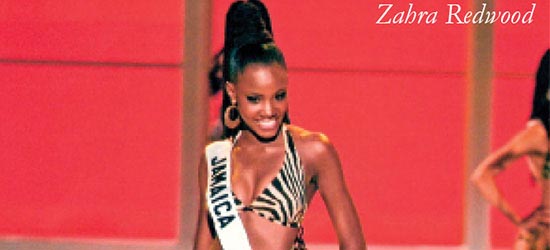
The global movement, which had its genesis in Jamaica, pays homage to Ras Tafari Makonnen, crowned His Imperial Majesty Haile Selassie I, on November 1930. His coronation as King of Kings, Lord of Lords, and the Conquering Lion of the Tribe of Judah was interpreted as fulfillment of the Biblical prophecy in Revelations by not only Howell, but also shortly after and independent of Howell – by Joseph Nathaniel Hibbert, and H. Archibald Dunkley. Early followers came from the infamous Kingston Dungle, where Paul Erlingston, Vernal Davis and Ferdinand Ricketts, among others, declared Haile Selassie the ‘Living God’ in 1934.
In 1940, Howell established the Rastafarian settlement of Pinnacle, near Sligoville in St Catherine, which was the first free village in Jamaica after Emancipation for the majority Black population in 1838. He was sentenced to two years in Spanish Town prison in 1941 after being charged with sedition. On his release in 1943, Howell moved back to Pinnacle, but the community was eventually dismantled by the police in 1954, and Howell was later confined to a mental hospital.
In 1960, the University of the West Indies published a study after a group of Rastafarians wrote to Principal Sir Arthur Lewis “asking the University to help reduce the hostility towards them of a society that believed they were intent on violently changing the social order and destroying the state”. Roy Augier, Rex Nettleford and MG Smith spent two weeks among Rastafarian brethren and delivered ‘The Rastafari Movement in Kingston, Jamaica (1960).
Fast forward 52 years, and Damion Crawford sits in Gordon House as the first dreadlocked man to be elected a Member of Parliament in Jamaica. Crawford is the political representative of the East Rural St Andrew constituency, which coincidentally includes the Strawberry Hill Hotel, where Bob Marley eventually retreated to after being shot in December 1976 ahead of the Smile Jamaica concert, and from where he descended for a legendary performance at National Heroes Circle.

“I am the man, You love to hate. Look, I am now your next door neighbour”
Strides have certainly been made, evidenced by the choice of a dreadlocked Jamaican beauty queen, Zahra Redwood, as Miss Jamaica Universe 2007. Music has been key to the social elevation of Rastafarianism in Jamaica, beginning with Count Ossie and the Mystic Revelation’s Rastafarian drumming in the Folkes Bothers ‘Oh Carolina’, a session arranged by Prince Buster. Still, they would have been literally kept in the dark at a performance at the Carib Theatre, Cross Roads, had dancer Marguerita (who trombonist Don Drummond would later murder) not insisted that the light be shone on them.
That attempted sidelining paled in comparison to the ‘Bad Friday’ Coral Gardens incident on Good Friday, 1963, where a land dispute led to an escalating conflict in which a gas station was burnt and eight men killed. The state responded with large scale, indiscriminate brutality and humiliation against the Rastafarian movement, much of which is documented in the film ‘Bad Friday: Rastafari After Coral Gardens’ screened at the Bob Marley Museum last June. As one Rastafarian man said in the film, “them beat me in front of me generation”. There was also a telling moment when a retired policeman said that during his training an image of a Rastafarian man was used for target practice.
Bob Marley’s international status and relationship with the accepted epitome of beauty, Miss World 1976 Cindy Breakspeare, may have been characteristic of that shift. Even then, in 1976 Ras Karbi recorded ‘Discrimination’, a take-off of a song by a Canadian band. It starts out with the call to the faith:
Then he goes to seek employment and sees a sign:
“Long hair freaky people need not apply No waan no ol’ naygah no Rastafari”
Tucking up his hair in his tam, the applicant initially wins the approval of the prospective employer, who goes for an application form only to return and see Karbi’s dreadlocks let down:
“So I take off my hat just like him request. You should see him hiding under the desk”
Needless to say, there was no longer a job opening.
Today, however, notable Rastafarians have risen to prominence as leaders in their profession, and disciples of the movement can be found globally from Mexico to Japan. Still, acceptance of locks is different from acceptance of those who profess Rastafarianism, what with locks simply being a style for many (sometimes derisively known as ‘fashion dreads’). Techniques such as Sisterlocks, introduced to Jamaica in the late 1990s to early 2000s, which utilize instead of a process of non-interference have also resulted in more widespread acceptance of the dreadlocked hairstyle.
But there is only one in Jamaica’s House of Parliament and there is no doubting the intentions of the man who has given dreadlocks its most visible position in state power. According to Crawford in The Gleaner of December 10, 2011, ahead of Jamaica’s ninth general election since Independence, : “I am going to prove to Jamaican people that they don’t have to bleach to reach because I won’t have to trim to win.”
He has not. But, unless his cheeks are naturally smooth, he shaves.

